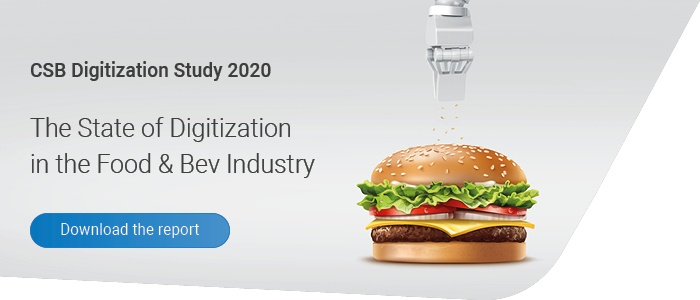At the 23rd Climate Change Conference in Bonn, lively debates on climate protection and sustainability can be expected. Three reasons why food producers should face this topic now.
When the World Climate Conference meets in Bonn from 6 to 17 November, not only are ecological and social aspects at stake. From an economical perspective, sustainability is a success strategy. Federal Foreign Minister Sigmar Gabriel advocated a balance between climate protection and economic interests. In an interview with ‘Bild am Sonntag’, Gabriel said: “We must demonstrate that climate protection and economic success are not mutually exclusive.” And it is true: Ultimately, activities for more sustainability pay off, for three reasons.
1. Companies subject to reporting requirements integrate their vendors
Firstly, laws and directives in the areas of climate protection and sustainability are becoming more stringent. For example, the current Corporate Social Responsibility directive requires EU companies to publish sustainability reports and to align their business activities accordingly. In Germany, the law to strengthen companies’ non-financial disclosure in their management reports and group management reports (act on the implementation of the CSR directive) applies, which entered into force on April 18, 2017. Consequently, the major companies that are subject to the reporting obligation therefore inevitably set the standard here. In the future, they will increasingly integrate their vendors in the activity chain, demanding for example the compliance with social standards, etc.
2. Consumer awareness is changing
The second reason refers to the consumers. Today only a few of them are prepared to pay more money for products from sustainable production. However, this attitude is changing, as the performance management firm Nielsen found out in its survey in April 2017. Nielsen’s experts are already speaking of a paradigm shift in alimentation: “Behind this is the wish for honest products and an ethical and moral compatibility of foodstuffs,” explains Anne-Kathrin Haubert, expert for conscious eaters and senior business consultant at Nielsen. According to the study, 72 percent of German consumers are already buying quality and environment-oriented. Such consumers are well informed and critical. And they are becoming more. Thus, a target group is emerging that food manufacturers should address sooner rather than later - with sustainably made products.
3. Sustainability saves money
And thirdly, sustainability activities result automatically in optimization and rationalization of company internal processes. A good example for this are the CO2 emissions in transport logistics, which in many cases are simply too high. Yet these emissions can be reduced, for example by means of a software-aided route optimization. And this also has major impacts on the costs: Food manufacturers can reckon with cost reductions of up to 15 percent in freight management by using software-aided planning, control and monitoring. Route planning and optimization systems optimize scheduling, routes, capacity utilization, load weights and volumes as well as vehicle and staff assignments. Consequently, transport costs as the largest cost factor in logistics can be reduced substantially, while resource capacities can be utilized in an optimal manner. The chart illustrates the economic potential of route optimization.
Many other examples demonstrate that IT solutions can string together economic, ecological and social aspects: for example, through better sales forecasts in order to minimize the waste of food. Or through the use of energy management systems for reducing the overall energy consumption significantly.
Conclusion: Becoming green pays off - for all parties involved!


